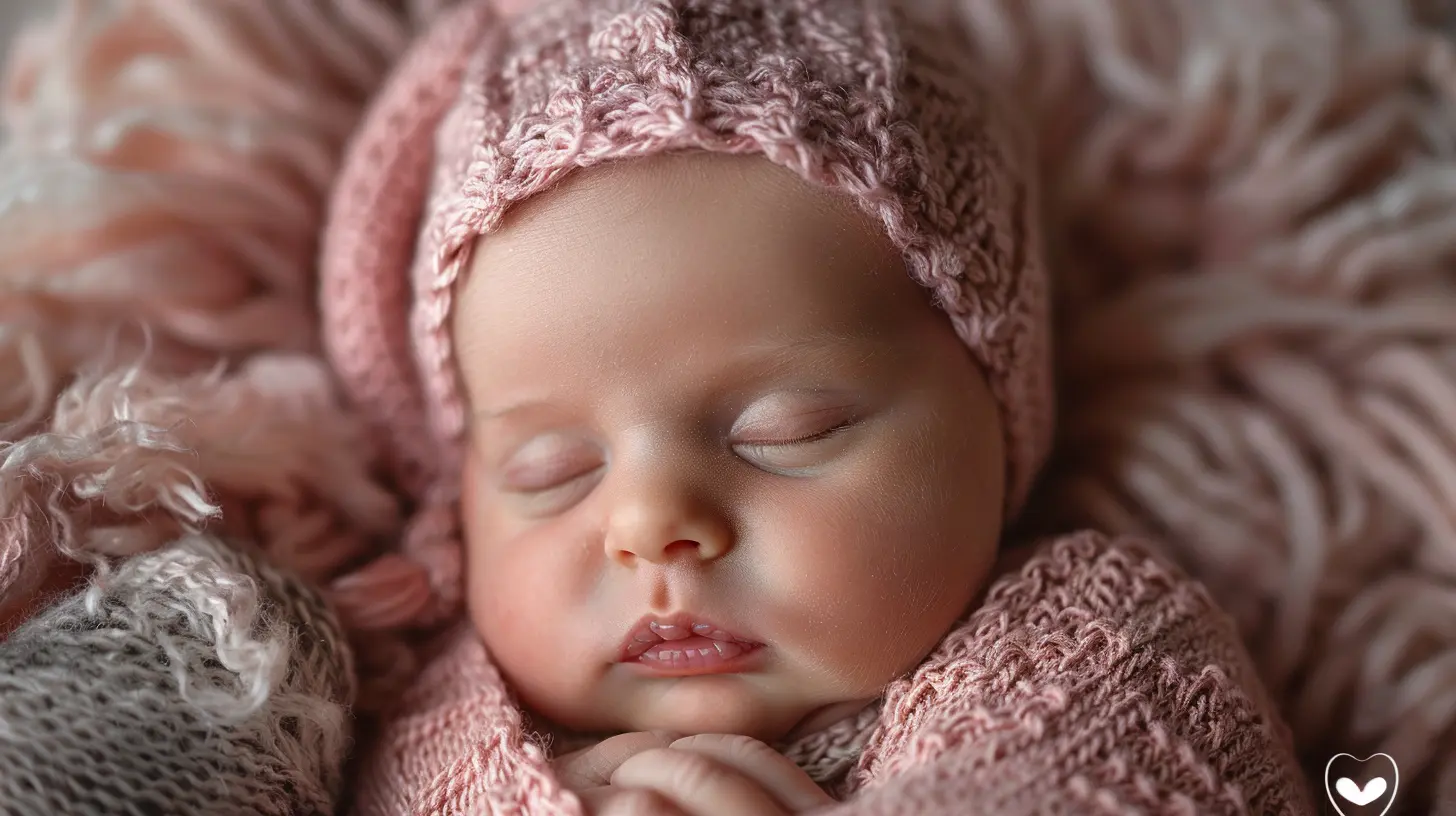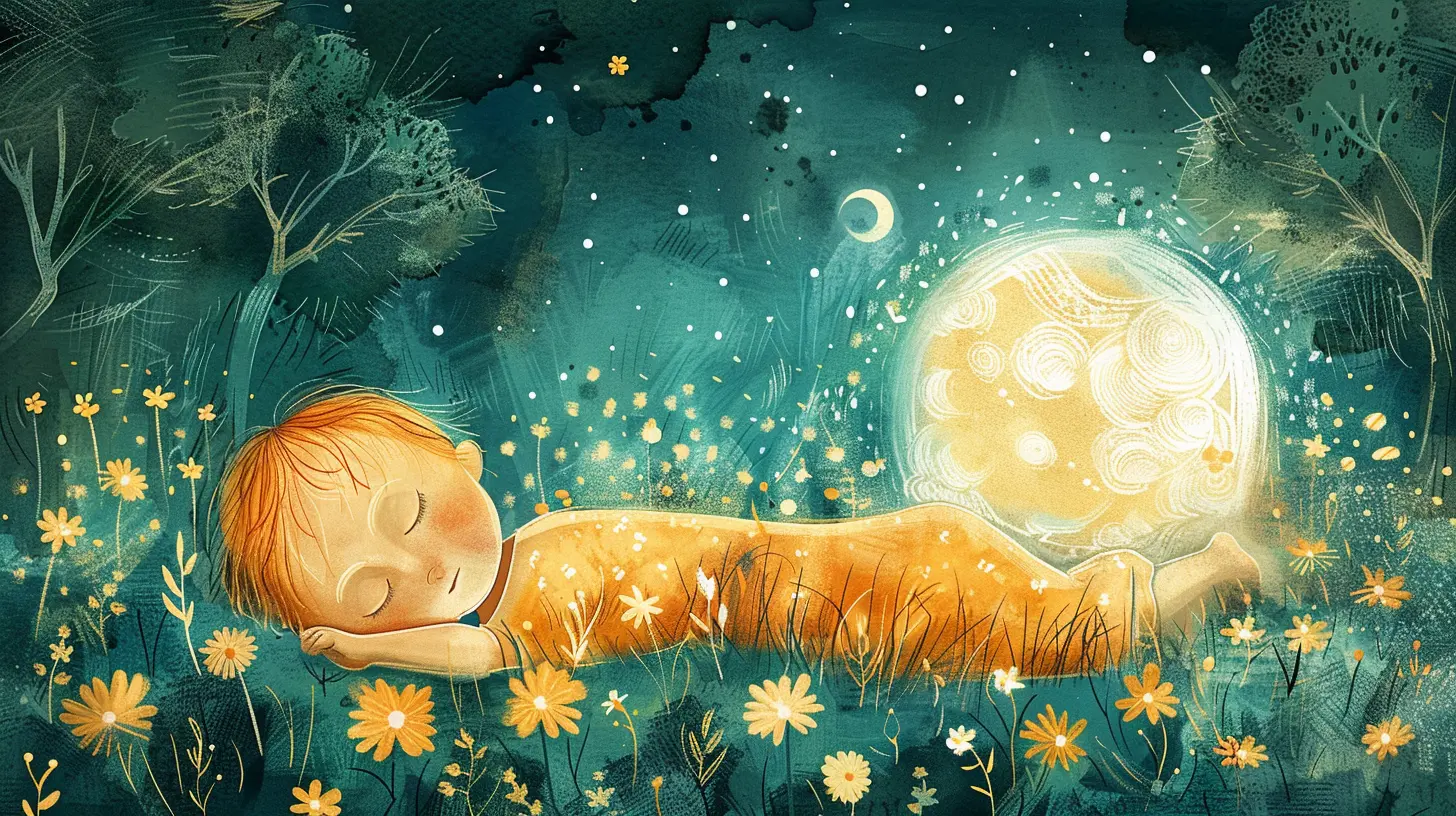Sleep Training for Babies: Following Their Natural Rhythms
6 July 2025
Sleep is a hot topic for every new parent — and with good reason. The moment your little one arrives, sleep instantly becomes both your most desired luxury and your most common conversation topic. If you're reading this, chances are you're running on little sleep, a lot of coffee, and even more questions. So let’s dive into a gentle, rhythm-friendly approach: sleep training for babies by tuning into their natural rhythms.
You don’t need to be a sleep expert (or hire one for a fortune) to get your baby sleeping better. You just need to understand what their tiny body is naturally programmed to do — and work with it, not against it.

What is Sleep Training, Really?
Let’s start by busting a myth. Sleep training doesn’t necessarily mean letting your baby cry it out alone in the dark for hours. That’s one method, sure. But it’s far from the only one – and absolutely not what every baby needs.Sleep training, at its core, is simply teaching your baby to fall asleep and stay asleep on their own. Just like potty training or learning to eat solids — it’s a process, not a punishment. And when done with your baby's biological clock in mind, it can be incredibly gentle and effective.

Why Natural Rhythms Matter
Ever heard of circadian rhythms? They're basically our internal clocks — the thing that tells us when to feel sleepy, when to wake up, and when to eat. Babies have them, too, but theirs are still developing during the first few months.When we talk about following a baby’s natural rhythm, we’re really talking about tuning into these instinctive cycles of sleep and wakefulness. Instead of fighting them (hello, over-tired meltdown at 10 PM), you work with them. It's like catching the sleep wave instead of swimming against the tide.

The Mistake Most Parents Make
Let’s be honest. We all want one thing: a baby who sleeps through the night. So we google sleep schedules, read every blog, and try every trick. But here’s the thing — many modern sleep strategies focus on the clock, instead of the child.That’s the mistake — forcing a baby into a schedule that’s not right for their age, stage, or temperament. It’s like trying to get a sunflower to bloom in the dark. It just won’t work, no matter how hard you try.
So what can we do instead? Follow their cues instead of the clock.
Understanding Baby Sleep Cycles
Before we get into strategies, it helps to know a little baby sleep science. It’s not rocket science – but it’s definitely fascinating.1. Newborns (0–3 Months)
Newborns don’t have a set circadian rhythm yet. They sleep in cycles of 2–4 hours around the clock. That’s normal. Their sleep is mostly governed by hunger, not light or time. So sleep training in this phase isn’t really about “training.” It’s about survival (yours and theirs) and gentle routines.2. Infants (4–6 Months)
At this stage, a baby starts developing a day-night preference. Melatonin (that natural sleep hormone) starts kicking in, and you can begin introducing patterns and routines. This is when natural rhythm-based sleep strategies really start to work.3. Older Babies (6–12 Months)
By now, babies can begin learning to self-soothe. They might start consolidating their night sleep and reducing night feeds. Their naps become more predictable, and sleep routines start to stick. This is a golden window for rhythm-based sleep training.Signs Your Baby is Ready for Sleep Training
Every baby is different — but there are a few universal signs that show they’re ready for some gentle coaching:- They’re at least 4 months old
- They're beginning to have a regular feeding schedule
- They can stay awake for 1.5–2.5 hours between naps
- They respond well to bedtime routines
- They wake frequently but don’t need to feed every time
Got most of those boxes checked? Great, let’s talk about how to do this in a way that respects your baby’s instincts.
How to Follow Your Baby's Natural Rhythms
Alright, here’s the juicy stuff. How do you actually follow a baby's natural rhythms while sleep training? It's all about observing, responding, and gently guiding.1. Watch for Sleepy Cues
Babies are surprisingly good at communicating when they’re ready for sleep — if you know what to look for. Here are a few signs:- Rubbing eyes or ears
- Looking away or staring off into space
- Yawning (duh)
- Fussiness or sudden crankiness
Once you spot those signals, don’t wait too long! There’s a tiny window between “sleepy” and “overtired.” Miss the window and you’re dealing with a tiny tornado.
2. Use Wake Windows
Wake windows are basically the amount of time your baby can handle being awake before needing sleep again. These vary by age. Here's a simple guide:| Baby's Age | Wake Window |
|------------|-------------|
| 0–6 weeks | 45–60 mins |
| 6–12 weeks | 60–90 mins |
| 3–4 months | 75–120 mins |
| 5–7 months | 2–2.5 hours |
| 8–12 months| 2.5–3.5 hours |
Stick to these and you’re not just guessing when to put your baby down — you’re working with their biology.
3. Create a Consistent Bedtime Routine
Babies thrive on predictability. A short, sweet, and consistent bedtime routine helps their brain recognize sleep is coming. Think of it as flipping the "night mode" switch in their brain.A sample 20-30 minute routine:
- Bath or warm wipe-down
- Fresh diaper and comfy sleepwear
- Dim the lights
- Quiet story or lullaby
- Snuggle and feed (if needed)
- Put down drowsy, not fully asleep
Keep it mellow. Save the tickle fights and peek-a-boo marathons for daytime!
4. Respect the Nap Schedule
So many parents skip or shorten naps to try to "tire the baby out for better night sleep." Sound familiar?Spoiler alert: It backfires.
Overtired babies don’t sleep better — they sleep worse. Their bodies fill with cortisol (the stress hormone), making it harder to fall and stay asleep. Balanced naps are key to good nighttime sleep. You get good nights by honoring the days.
5. Let Them Practice Self-Soothing
This doesn’t mean abandoning them or forcing them to cry alone. It simply means giving them a little space before rushing in. Babble? Whimper? Pause for a few breaths. Sometimes babies fuss as they’re settling — and that's okay.You’re helping them build a skill here — like learning to ride a bike. You hold on at first, then gradually let go.
Popular Rhythm-Friendly Sleep Training Methods
Let’s break down a few methods that align well with a baby’s natural rhythms.The Pick-Up/Put-Down Method
- Good for: 4–8 months- How it works: When baby cries, pick them up, comfort them, then put them back down when calm. Repeat as needed.
- Why it works: It respects their need to feel safe while helping them learn to calm down on their own.
The Chair or “Camping Out” Method
- Good for: 6+ months- How it works: Sit in a chair next to their crib as they fall asleep. Each night, move the chair further away until you're out of the room.
- Why it works: It’s a slow separation that feels safe and secure for both baby and parent.
The Wake and Sleep Method
- Good for: Any age- How it works: Gently rouse your baby slightly after putting them down asleep. This helps them learn to fall back asleep on their own.
- Why it works: It teaches self-soothing in a very subtle, non-disruptive way.
What If It Doesn’t Work?
Sometimes, despite your best efforts, your baby fights sleep training like a boss. That’s okay. You’re not doing anything wrong. Here’s what to check:- Are they overtired? (Try earlier naps)
- Are they under-tired? (Stretch wake windows)
- Is something else going on? (Teething, growth spurt, illness?)
Take a breath. Take a break. Sleep training isn't a race. It's a journey — and there's no one "right" path.
Trust Your Instincts
At the end of the day, no blog post (not even this one!) knows your baby better than you do. Use this guide as a starting point, not a rulebook. Take what works, leave the rest, and trust your gut.Remember — this isn’t about perfection. It’s about progress. Some days will be smooth, some will be chaotic. That’s parenting.
And when in doubt, snuggle. You can sleep train and still cuddle. You can set boundaries and still be loving. It’s not one or the other.
Final Thoughts
Following your baby's natural rhythms is less about strict schedules and more about intuitive parenting. When you tune into their cues, respect their sleep windows, and guide them gently, you’re not just building better sleep habits — you’re building trust.Sleep training doesn’t have to be a battle. It can be a dance — one where you and your baby move in sync, step by step.
You've got this.
all images in this post were generated using AI tools
Category:
Sleep TrainingAuthor:

Kelly Snow
Discussion
rate this article
1 comments
Mika Maddox
Great article! Emphasizing natural rhythms in sleep training is so important for both babies and parents. It’s reassuring to know that following their instincts can lead to healthier sleep patterns. Thank you for sharing these valuable insights—this approach fosters a nurturing environment for our little ones!
July 13, 2025 at 2:27 PM

Kelly Snow
Thank you for your kind words! I'm glad you found the insights helpful in promoting healthy sleep for both babies and parents.


